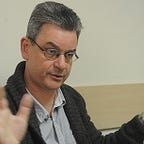Are Tourists Safe in Europe?
By: Sam Vaknin, Brussels Morning
It is only a question of time before the war between Iran (via its proxies, Hamas and Hizbullah) and Israel hits the shores of Europe. Expect major terrorist attacks in cities across the continent imminently.
Isolated terrorist attacks have no long-term effects on destination tourism. Only a prolonged period of civil unrest and warfare can decimate a country’s inbound tourism. Facing a variety of threats has always been an integral part of the “job description” of a tourist.
Nowadays, as they embark on their annual “vacance”, tourists are mentally prepared to cope with international terrorism; domestic terrorism and insurgencies; blended terrorism (domestic malcontents inspired by international ones); crime (pickpockets, panhandlers, muggers, kidnappers, the homeless, unsolicited prostitution, etc.); the risks attendant on inadvertently violating social and cultural mores, norms, customs, and laws in the host country; endemic diseases and health hazards (food poisoning and food allergies, or encounters with indigenous predatory or venomous fauna and flora for example); natural disasters; and economic disruptions. Nowadays, tourists are far more versed at adopting precautions and implementing preventive measures.
We tend to forget, though, that tourists not only fall victims to mishaps and delinquency — they are also vectors of threats. Tourists are often zero patients in the spread of contagion and pandemics.
Terrorists, narco-dealers, and intelligence officers frequently pose as tourists to gain safe passage to their targets. Some tourists constitute a threat to other tourists owing to their nationality (Israeli, American) or their misconduct and inappropriate behavior.
After the 9/11 terrorist attacks, there has been an imperceptible move away from vacation to staycation (spending one’s days off at home) and, more broadly, to domestic tourism.
Abroad, tourists are tempting soft targets for criminals and terrorists, both homegrown and international. Often greeted by xenophobia and rabid stereotypes, tourists cannot rely on suspicious local law enforcement or on the hostile populace to come to their aid or to not abet their persecutors.
The “starburst” model of asymmetrical warfare seeks to strike against multiple nationalities in a single operation carried out with minimal assets and means. It is part and parcel of the concept of “total war” which makes no distinction between combatants and civilians.
A tourist resort is, therefore, an ideal target. It is also impossible to enhance the resilience of such soft targets by fortifying them because this would counteract and conflict with the openness and freedom which are an essential part of the experience of tourism.
Truly defending against terrorist attacks would require the conversion of hotels into prisons and the transformation of the tourist’s numbered holidays into an anxiety-ridden, worry-filled nightmarish sojourn.
Security planners would do well to emulate the lessons learned in information technology defenses: establish a comprehensive, hard to penetrate perimeter (firewall); multi-layered, distributed as well as concentric intrusion detection systems; intelligence-driven protection (akin to signature-based antivirus products); biometric and face recognition defenses; systems founded on heuristic, behavioral, and tell-tale signs; coping with insider threat (hotel personnel or tour guides recruited by terrorist organizations or crime rings, for instance); compartmentalization and backup zones (similar to the architecture typical of ocean liners); and dynamic, proactive protection and surveillance of paths, routes, marketplaces, downtown city centres, hubs, transportation, events, etc.)
It is clear that passive deterrence (e.g. CCTV) is not enough. It should go hand in hand with preventive and preemptive measures, education, preparedness, and active deterrence (via, for example, a pronounced, advertised, and visible police presence).
A customer-friendly and specially-trained Tourism Police, integrated with various suppliers and providers in the tourism industry could go a long way towards ameliorating and countering persistent threats to tourism. Simple maintenance has been proven to reduce crime dramatically: street lighting, hedge pruning, sanitary measures, homeless shelters, needle exchanges, and so on. Organized tours should always incorporate one or more security guards.
Tourist education is critical: cultural sensitivity training; introduction to the legal system in the destination and to specific, relevant laws; the role, functions, and limitations of the diplomatic missions in situ, safety and security measures and behaviors; and lists of useful and emergency contacts (including medical personnel and lawyers).
Tourist attractions, accommodation, and services should be ranked for security and safety, possibly via crowdsourcing (similar to the comparative information provided by TripAdvisor.com).
References
Tourism, Security and Safety — From Theory to Practice (http://www.sciencedirect.com/science/book/9780750678988), A volume in The Management of Hospitality and Tourism Enterprises, 2006 — Edited by:Yoel Mansfeld and Abraham Pizam — ISBN: 978–0–7506–7898–8 — doi:10.1016/B978–0–7506–7898–8.50001–1 (http://dx.doi.org/10.1016/B978-0-7506-7898-8.50001-1) — Copyright © 2006 Elsevier Inc. (https://www.elsevier.com/) All rights reserved.
Risk and safety management in the leisure, events, tourism and sports industries — Erdogan Koc — doi:10.1016/j.tourman.2015.12.006 (http://dx.doi.org/10.1016/j.tourman.2015.12.006) — Tourism Management (http://www.sciencedirect.com/science/journal/02615177), Volume 54, June 2016, Pages 296–297 — Published by Elsevier (https://www.elsevier.com/)
Tourism Security — Strategies for Effectively Managing Travel Risk and Safety (http://www.sciencedirect.com/science/book/9780124115705) — Peter E. Tarlow — ISBN: 978–0–12–411570–5 — doi:10.1016/B978–0–12–411570–5.09991–8 (http://dx.doi.org/10.1016/B978-0-12-411570-5.09991-8) — Copyright © 2014 Elsevier Inc. (https://www.elsevier.com/) All rights reserved.
Sam Vaknin, Ph.D. is a former economic advisor to governments (Nigeria, Sierra Leone, North Macedonia), served as the editor in chief of “Global Politician” and as a columnist in various print and international media including “Central Europe Review” and United Press International (UPI). He taught psychology and finance in various academic institutions in several countries (http://www.narcissistic-abuse.com/cv.html )
